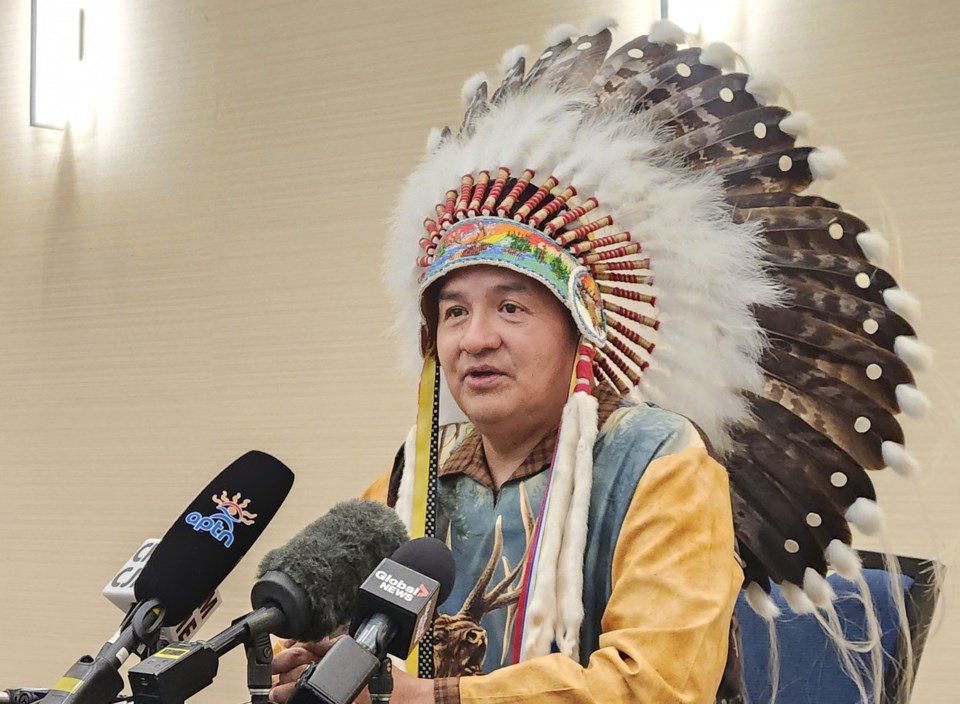SASKATOON—The Federation of Sovereign Indigenous Nations Executive is demanding that world leaders, who gathered for the 51st G7 Summit in Alberta, include First Nations across the country in their decision-making processes that affect their ancestral lands, traditional territories, Inherent and Treaty Rights, jurisdiction, and sovereignty.
G7 leaders, or the Group of 7, are composed of seven of the world’s major industrial countries. Canada, France, Germany, Great Britain, Italy, Japan, and the United States are the member nations. Russia was a member, but was kicked out in 2014 after annexing Crimea.
Canada is this year’s host, and the summit, held annually to discuss global economic policies and geopolitical issues, took place in Kananaskis from Sunday, June 15, to Tuesday, June 17. Kananaskis is part of Treaty 7.
Canada’s First Nations continue to press for meaningful participation that is directly tied to their inherent sovereignty and constitutionally protected rights under Section 35, as well as specific Inherent and Treaty rights spanning Treaties 1 through 11 across Turtle Island.
The FSIN, in a statement, said that topics such as constitutional violations and broken treaties, as well as the unlawful and illegal Natural Resources Transfer Agreements, which contradict the United Nations Declaration on the Rights of Indigenous Peoples, must be discussed.
The NRTA also conflicts with the [UNDRIP]. In 1930, Canada unilaterally transferred natural resources to the three Prairie provinces without the consent of First Nations, and promises were made that resources would not be sold without discussion with First Nations people. Still, this transfer occurred without the free, prior, and informed consent of First Nations,” said FSIN.
The addition of the NRTA also violates Inherent and Treaty rights, and is incompatible with Section 35 of the Constitution. First Nations representation is a factor, as without it, economic marginalization will continue, allowing Canada to benefit from the exploitation of natural resources.
FSIN Chief Bobby Cameron said that First Nations leaders from across the country should be included in the meetings at the G7 Summit, including discussions on climate change, as it will not be meaningful without their knowledge systems, knowledge keepers, and participation.
“We as First Nations leaders must be at these high-level meetings as our Inherent and Treaty rights are of international law. The numbered Treaties did not surrender First Nations' title to natural resources. Rather, these agreements recognized our Inherent and Treaty Rights, jurisdiction and sovereignty of First Nations and to continue to watch over the resources, lands and waters within our ancestral and traditional territories,” said Cameron.
“We didn’t give up the resources, lands or waters. We maintain sovereignty over the resources, lands and waters. We are the original signatories, and we won’t stop asking for direct participation in all future international summits, and our rightful share of resource revenues and decision-making authority over our lands.”
The international community at the G7 Summit has an opportunity to model true reconciliation by acknowledging First Nation Inherent and Treaty Rights, our sovereignty and jurisdiction. As discussions proceed on global economic stability, climate action, and international partnerships, the absence of First Nations from these conversations represents a fundamental failure to uphold constitutional obligations, Treaty relationships, and human rights standards.




